The Luxembourg Gardens
The Age Of Reason, p.8
She shivered and drew back, eyeing the photograph with a vague smile 'I was a scream in those days,' she said. The girl was standing stiffly upright, leaning against a garden railing. Her mouth was open: she too was about to say: 'It's a scream,' with the pert assurance of the Marcelle of today. But -she was young and slim. 'Such a scream! It was taken in the Luxembourg by a chemistry student. You see the blouse I'm wearing? I'd bought it that very day.'
The Age Of Reason, p.48
The Luxembourg, warm and white, statues and children. The children ran about, the pigeons flew away, white flashes, tiny turmoils. He sat down on an iron chair.
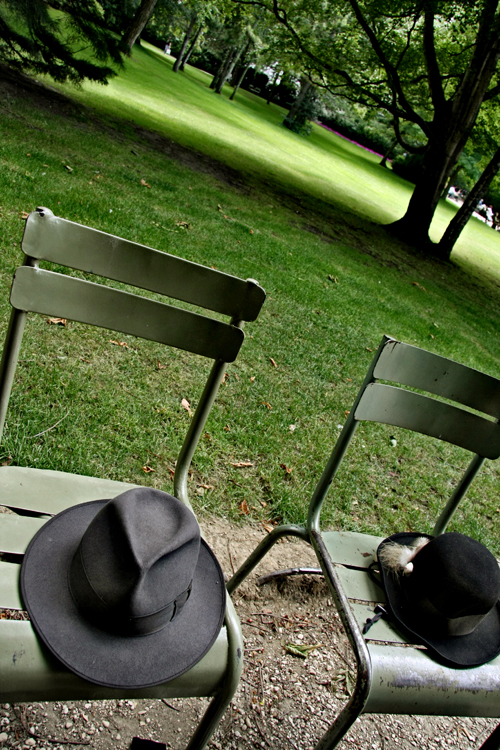
War Diaries, p. 264
To cut a long story short, I personally conceived and acted countless plays. At first, in the lavatory of our flat ( I was then living with my grandparents, on the sixth floor in Rue Le Goff, which leads off Rue Soufflot) . Then, little by little, I grew bolder : I 'd carry my puppets, with a towel , to the Luxembourg ; I 'd pick a chair in one of the walks in the 'English Garden' ; I'd crouch down behind this, draping my towel round its feet ; and I'd then display the puppets, fitted over my
raised hands, between the uprights of the chair's back . The chair would thus be transformed into a very acceptable little stage . I used to perform and speak aloud as if for myself alone. But I 'd know perfectly well what I was waiting for - and which didn't fail to occur, right from the very first time, within quarter of an hour : the children broke off their games, sat down quietly on chairs, and gave all their attention to that free performance .
The Age Of Reason, p.51
Sailing-boats sped over the Luxembourg pond, lashed from time to time by falling water from the fountain. He stopped to look at the miniature regatta .. near the fountain, a little boat was in distress, and a laughing crowd looked on as a small boy tried to rescue it with a boat hook.
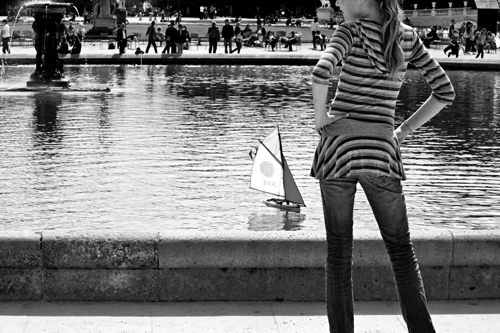
The Reprieve, p.55-6
He is lost in a crowd of pilgrims, peace has come to them, they touch and see it, and they shout 'Peace!' Peace everlasting. He sits in the Luxembourg garden, on an iron chair, now he can look forever at the chestnut trees in bloom, the war has receded into the past, he stretches out his skinny legs, he watches the children at play; they, he thinks, will never know the horrors of war.
Words, p34
‘in the zoo, the monkeys were less like monkeys. In the Luxembourg gardens, men were less like men.’
Nausea, p.245
Shall I go and play croquet with the pensioners in the Luxembourg Gardens?
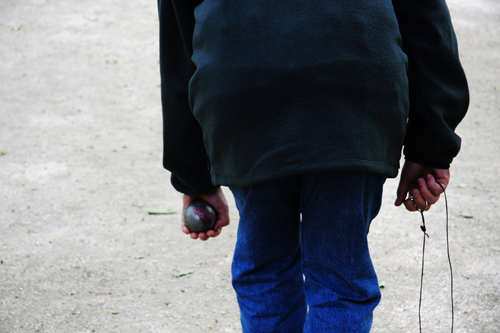
Words, p.105-6
My sword broken, reduced to the common herd, I often had this anxiety dream at night: I was in the Luxembourg Gardens, near the pond, opposite the Senate; I had to protect, from some unknown danger, a little girl with fair hair like Vévé who had died a year earlier. The little girl, calm and trusting, would look up at me out of her serious eyes; often, she would be holding a hoop. I was the one who was scared: I was afraid of abandoning her to invisible forces. Yet how I loved her, and with how despairing a love! I still love her; I have sought her, lost her, found her again, held her in my arms and again lost her: this is the Epic. At the age of eight, as I was becoming resigned, I gave a violent start; to save this little dead girl, I embarked on a simple but insane operation which altered the course of my life: I unloaded on to the writer the consecrated powers of the hero.
Nausea, p.19
When I was eight years old and used to play in the Luxembourg gardens, there was one who came and sat in a sentry-box, against the railing that runs along the rue Auguste-Compte. He didn't speak, but every now and then would stretch his leg out and look at his foot with a terrified expression.
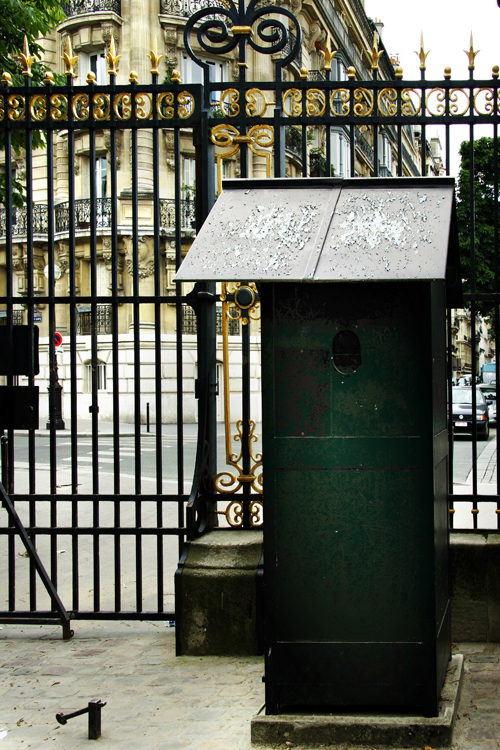
The Chestnut Tree
Nausea, p.182-4
I was in the municipal park just now. The root of the chestnut tree plunged into the ground just underneath my bench. I no longer remembered that it was a root. Words had disappeared, and with them the meaning of things, the methods off using them, the feeble landmarks which men have traced on their surface. I was sitting, slightly bent, my heads bowed, alone in front of the black, knotty mass, which was utterly crude and frightened me. And then I had this revelation. It took my breath away. Never, until these last few days, had I suspected what it meant to 'exist' .. And then, all of a sudden, there it was, as clear as day: existence had suddenly unveiled itself. It had lost it's harmless appearance as an abstract category: it was the very stuff of things, that root was steeped in existence. Or rather the root, the park gates, the bench, the sparse grass on the lawn, all that had vanished; the diversity of things, their individuality, was only an appearance, a veneer. This veneer had melted, leaving soft, naked masses, in disorder - naked, with a frightening, obscene nakedness .. The chestnut tree pressed itself against my eyes. Green rust covered it half way up; the bark, black and blistered, looked like boiled leather .. If you existed, you had to exist to that extent, to the point of mildew, blisters, obscenity. In another world, circles and melodies kept their pure and rigid lines. But existence is a curve ..
We were a heap of existents inconvenienced, embarrassed by ourselves, we hadn't the slightest reason for being there, any of us, reach existent, embarrassed, vaguely ill at ease, felt superfluous in relation to the others.
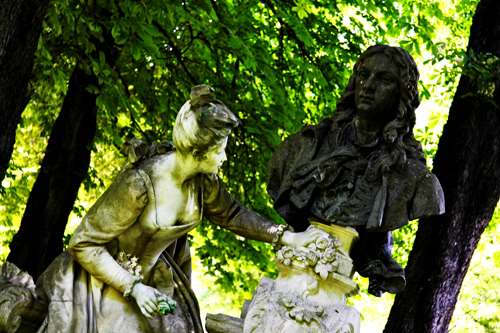
Nausea p.188
I was the root of that chestnut tree. Or rather I was the consciousness of its existence.
War Diaries, p.85
There was something of the existential then floating about almost everywhere in our little world . For many students , their first contact with philosophy had expressed itself in a kind of amazement - which was genuinely existential and
authentic, though pretty silly for all that - at death, time, the existence of other consciousnesses . The Beaver, precisely, didn't escape this, because she's more naturally authentic than me. At the age of eighteen, she was sitting on an iron chair in the Luxembourg Gardens, leaning back against the Museum wall and thinking : ' I 'm here , time is flowing by and this instant will never return', and this caused her to fall into a state of stupefaction resembling sleep. But this philosophical poverty is, in reality, very authentic philosophy : it's the moment at which the question transforms the questioner. The Beaver on her chair was really a little metaphysical being : she had metaphysicized herself wholeheartedly, she was throwing herself into time, she was living time, she was time. On waking, however, it was her words - those empty , highflown words - that betrayed the strange metamorphosis : 'this instant will never return'.